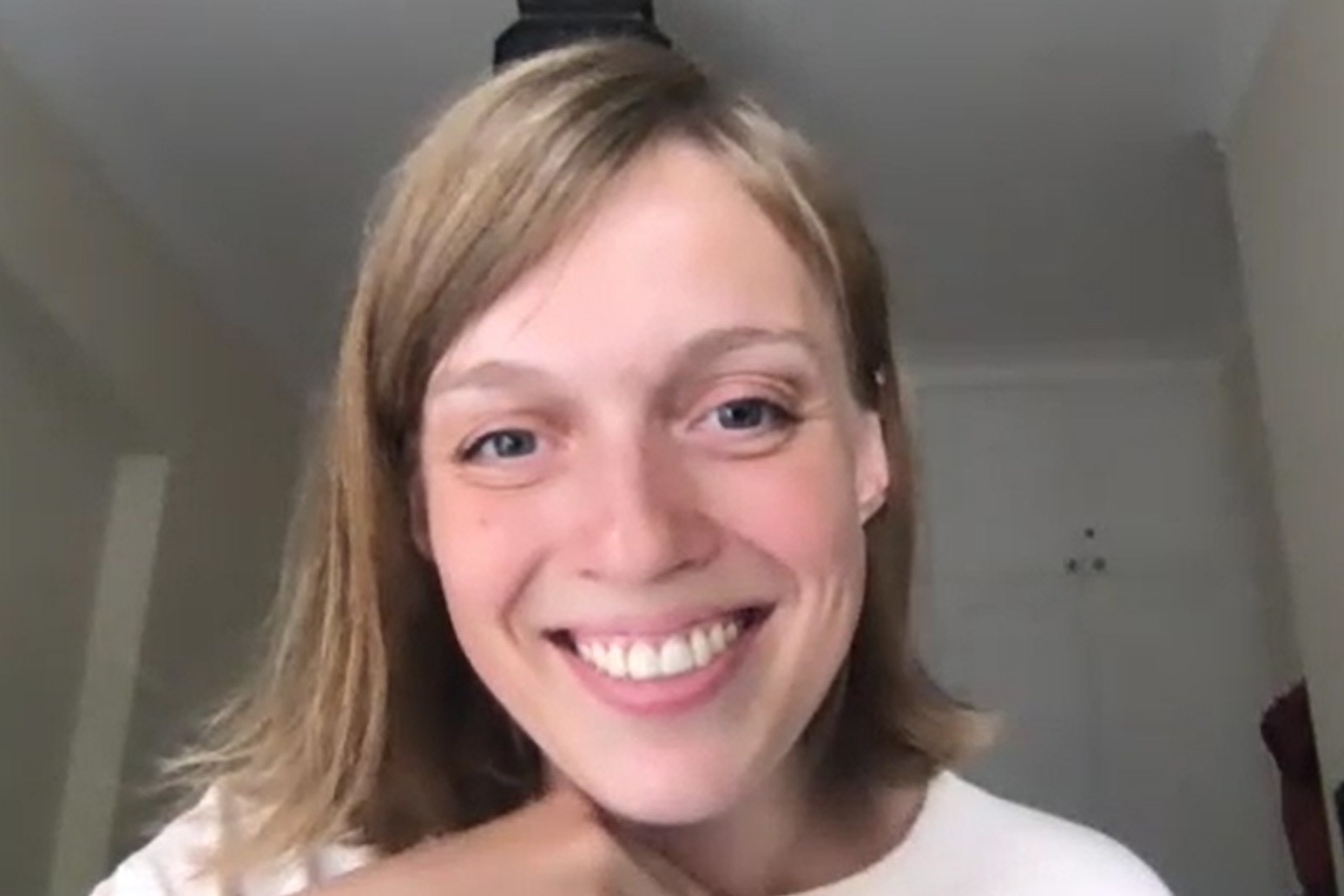
Non-profit selling Ukrainian children’s art is ‘world-changing,’ says co-founder
The co-founder of a non-profit that sells artwork submitted by Ukrainian children from bomb shelters and refugee camps said the project is helping “to change this world for the better”.
Aliaksandra Lamachenka, who is originally from Belarus but moved to west London in 2018, is one of three minds behind Leleka, an organisation that allows Ukrainian children to safely sell their artwork to people across the globe.
The platform is currently supporting a community of around 2,500 children, most of whom remain in Ukraine and have sent in more than 10,000 drawings.
“These are paintings that you would expect to see in MoMA, or in the Tate Modern – they are so creative,” Ms Lamachenka, 30, told the PA news agency.
“There are so many kids that are so talented.
“And oh my god, they are so young, but this is something that can definitely help us to change this world for the better.”
Ms Lamachenka works with a team of 34 volunteers from around the world to sell the submitted artwork for £7 a print.
After tax and transfer fees are deducted, all of the remaining money is securely transferred directly to the family bank account of the child that provided the drawing or painting.
The art is often a photo sent to Leleka from a bomb shelter or refugee camp which a group of volunteers will then edit to make clearer and upload to the website.
“(They are) able to sell their artworks to people from all over the world and feel useful, helpful and in control again,” Ms Lamachenka said.
“Many of them are staying in Ukraine and their parents have lost jobs (or their) parents are also volunteering or fighting for their country… Many families have (had) to flee to other countries and they have lost everything.
“So it’s very important for us to give this feeling to kids, so they can help their families and help their country.”
Drawings made by the children range from depictions of animals, sunny skies, oceans and cities to favourite fictional characters such as Harry Potter and Luke Skywalker.
They are also able to attach messages of thanks and details about their work.
Since its launch in the last week of June, £3,000 worth of art made by Ukrainian children has been purchased through Leleka.
Ms Lamachenka said the work is having a positive psychological effect on those involved.
“We have a beautiful example of one of the young artists on the platform – he’s seven years old,” she explained.
“He was saying, ‘If someone buys my artwork, I will donate this money to the armed forces of Ukraine,’ and at this point, someone so young, they don’t even believe that someone can be interested in them in their work.
“And when he learned that people started buying his art, he spent the whole afternoon after that just drawing and creating new pieces of art.
“And I find this incredible. We were able to distract this kid from horrors of war around him and allow him and other kids to start creating something as a distraction.”
While praising the momentous amount of teamwork, Ms Lamachenka did acknowledge feelings of shame she has experienced throughout the process.
“I’m just like feeling overwhelming shame for the fact that they are experiencing what they are experiencing,” she said.
“And that the world makes them experience it.
“It’s shame, it’s anger, but it’s also (an) overwhelming feeling of support and altruism.”
But Ms Lamachenka recognises that the platform’s work is “a release of anxiety and stress” and has set her sights high for the non-profit’s future.
“Our (current) ambition is to help kids earn at least £100 each in sales,” she said.
“It is important for us to give a priority to kids who are the most traumatised by the horrors of war, but eventually, we would really love to scale it to kids from Ukraine who are living in other countries and kids from all over the world.
“Because bad things are happening not only in Ukraine, so if at some point we would be able to empower kids globally, that would be incredible.”
She also said she is “very proud” of what Leleka has achieved in a short space of time.
“If we’re planting the seeds right now and see the results in 20 years from now, I will feel like this life was for a reason and we haven’t wasted it,” she added.
Published: by Radio NewsHub